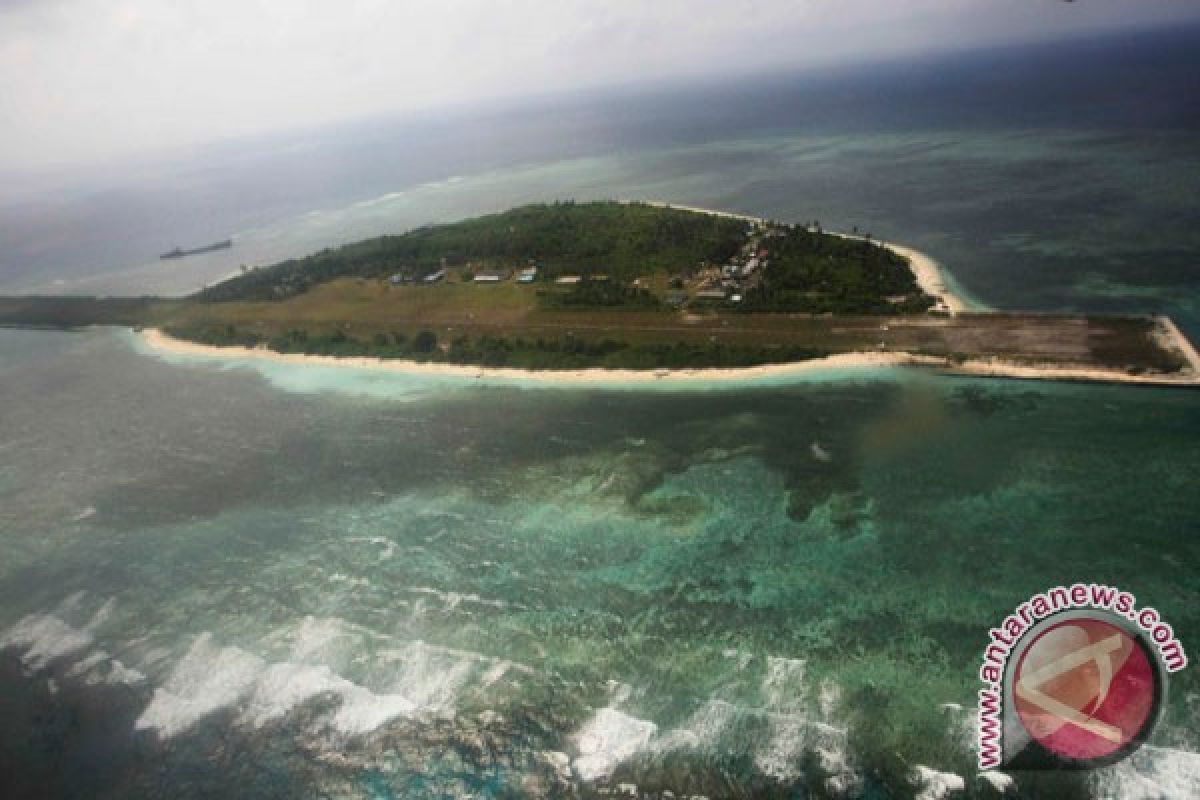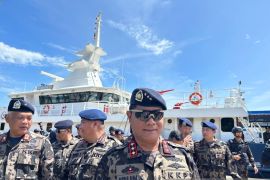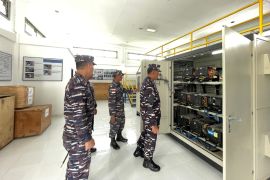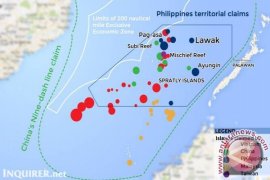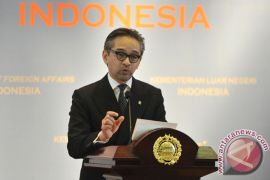"It is particularly so with the United States, on the one hand, and China, on the other."Jakarta (ANTARA News) - Indonesia, as the largest Southeast Asian country, is expected to continue playing its role as mediator in the dispute over the overlapping sovereignty claims on the Spratly Islands in the South China Sea.
"To help redress conflicts in the South China Sea, we have established cooperation with China and Vietnam in conducting coordinated patrols. Indonesia also has the same levels of cooperation with Malaysia, the Philippines and all members of ASEAN. Indonesia is even being asked to serve as a mediator and stabilizer," Navy deputy chief Vice Admiral Marsetio said on Thursday.
Speaking at an international seminar on "Cooperative Maritime Strategy to Enhance Security Stability in the South China Sea," Marsetio said the Indonesian Navy has deployed its marine forces by deploying its Western Fleet to help maintain security in the region.
He added that even though there is no current escalation of strength in the region and security remains normal, the conflict in the South China Sea had the potential to escalate.
Late last month, AFP reported that the Philippines had deployed 800 extra marines and opened a new headquarter to guard its interests in the disputed Spratly Islands.
Straddling vital shipping lanes and believed to be sitting atop vast reserves of mineral deposits, including oil, the chain of islands in the South China Sea has long been considered a flashpoint for conflict in the region.
Apart from the Philippines and China, the Spratly Islands are claimed, in whole or in part, by Vietnam, Brunei Darussalam, Malaysia and Taiwan.
The islands are important for a number of reasons. The area holds significant reserves of oil and natural gas. It is a productive area for world fishing and commercial shipping and coastal countries would get an extended continental shelf.
Some countries, like China, Taiwan and Vietnam have made their claim on the islands based on historical sovereignty.
Thus, as a neutral country and member of ASEAN, Indonesia is expected to remain as an interlocutor to mediate between conflicting claimants. As such, Indonesia has deployed its naval fleet to help maintain peace.
The step has been taken in an effort to prevent the conflicts from spreading to the Natuna waters, according to Vice Admiral Marsetio. The focus of fleet deployment in the Malacca Strait has been shifted to the South China Sea.
The essence of the conflict in the South China Sea is based upon countries seeking to extend their influence in the region.
"It is particularly so with the United States, on the one hand, and China, on the other," the Deputy Navy Chief said.
He added that all countries involved have agreed maintain cooperation in the region. Therefore, all of them are seeking alternative solutions to South China Sea issues.
In fact, the concerned parties had signed a declaration of conduct on the South China Sea in 2002.
This declaration was signed by the 10 foreign ministers of ASEAN countries and China on 4 November 2002 in Phnom Penh where the signatory countries pledged to resolve their sovereignty disputes in a peaceful manner, without resorting to the use of force and through direct negotiations between the countries concerned.
The parties also undertook to exercise self-restraint and refrain from activities that would complicate or escalate disputes and affect peace and stability. The pledge included refraining from establishing colonies on the presently uninhabited islands, reefs, shoals, cays, and other features.
Meanwhile, Indonesia and Singapore have also agreed that ASEAN should support the Code of Conduct for the settlement of the South China Sea problem in order to maintain regional stability.
"We agree with Singapore that ASEAN member countries should negotiate and support the Code of Conduct (COC)," presidential special aide for international relations, Teuku Faizasyah said at the presidential office on Thursday.
He said that the issue was one of the topics raised by Singapore`s foreign minister, K Shanmugam, during his meeting with President Susilo Bambang Yudhoyono recently.
He added that Singapore and Indonesia share the opinion that the South China Sea problem should not cause conflict among ASEAN members ahead of the regional summit in Cambodia next month.
At the previous ASEAN summit in Cambodia, the 10 member countries failed to issue a joint communiqu' on the South China Sea conflict.
Therefore, Indonesian Foreign Minister Marty Natalegawa held meetings with his counterparts from many ASEAN countries, urging them to issue a joint communiqu' on the dispute.
His efforts resulted in the ASEAN`s Six-Point Principles on the South China Sea. The principles include the importance of concluding negotiations on the COC and respecting international laws such as the UN Convention on the Law of the Sea (UNCLOs) of 1982.
Indonesia's efforts to play an important role in mediating the South China dispute have gained support from leaders such as Japanese Prime Minister Yoshihiko Noda.
Noda expressed his appreciation over the Indonesian role to President Susilo Bambang Yudhoyono on the sidelines of a bilateral meeting at the UN General Assembly in New York last month.
"The Japanese Prime Minister expressed his appreciation for Indonesia`s role related to the negotiations on the South China Sea issue and hoped that Indonesia continues its role at the next East Asia Summit in Cambodia," Faizasyah said.
(T.A014/INE/KR-BSR)
Reporter: by Andi Abdussalam
Editor: Priyambodo RH
Copyright © ANTARA 2012
